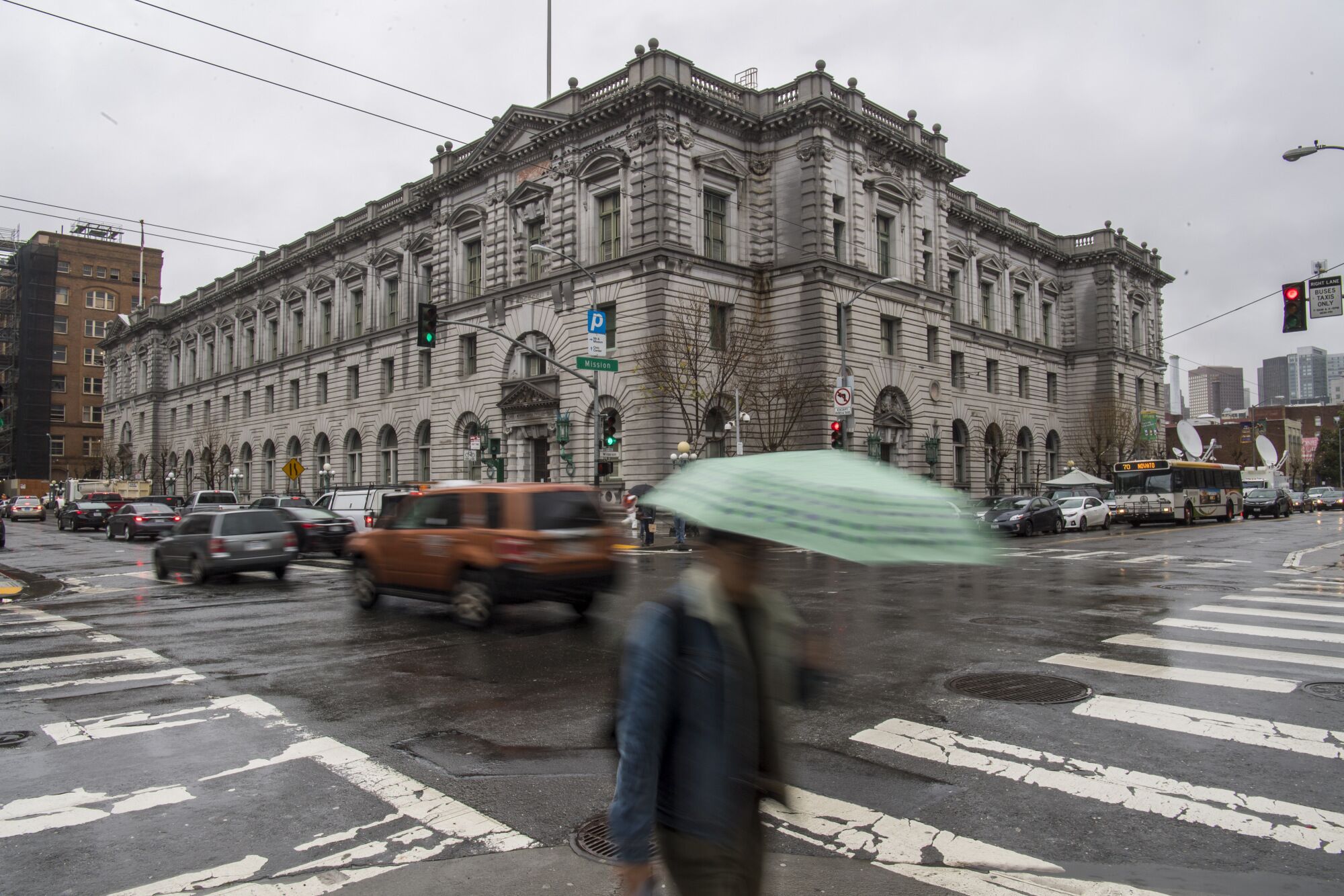() — A federal appellate court in San Francisco ruled that President Donald Trump’s restrictions on birthright citizenship are unconstitutional and should be halted while the legal case continues, marking another obstacle for the administration’s efforts to tighten immigration policies.
The decisionOn Wednesday night, the 9th U.S. Circuit Court of Appeals affirmed a previous decision made by a Seattle judge who had prohibited Trump’s executive order across the country in a lawsuit initiated by a coalition of Democratic state officials from Washington, Arizona, Illinois, and Oregon.
Numerous legal cases since January have questioned Trump’s effort to terminate automatic citizenship for children born in the U.S. to parents who are in the country illegally or on temporary visas. While the dispute made its way to the Supreme Court this year, the justices did not decide if Trump’s directive is constitutional.
The majority of the panel stated that the district court accurately determined that the executive order’s suggested interpretation, which would deny citizenship to numerous individuals born in the United States, is against the Constitution.
The ruling is the most recent instance of judges determining that wide-ranging injunctions against Trump’s birthright citizenship order are the sole means to safeguard the plaintiffs challenging the ban in court, even following the US Supreme Court’s action.new limitson such court orders last month. Earlier this month, a judge in New Hampshire issued a new order in a lawsuit brought on behalf of all affected infants.
The White House did not promptly reply to a request for statement.
Illinois Attorney General Kwame Raoul, who considers himself a birthright citizen, commended the courts in San Francisco and Seattle.
The district court was absolutely correct in February when it ruled the president’s order as clearly unconstitutional,” Raoul stated in a release. “The nationwide injunction was both necessary and suitable, and I commend the 9th Circuit’s ruling.
Trump’s executive order was temporarily halted several months ago in three different legal cases. However, the Supreme Court paused these decisions on June 27, after determining that judges typically cannot issue nationwide injunctions that completely stop federal policies. The justices sent the cases back to lower courts to determine if the injunctions should be adjusted or limited to apply only to the individuals or groups who filed the lawsuit.
The Supreme Court’s decision, praised as a significant triumph by the Trump administration, has not prevented judges from determining that wide-ranging injunctions against the president’s birthright citizenship policy are still essential to safeguard children born in the U.S. to immigrants.
The court’s decision on Wednesday marks a major victory for the four states that filed a lawsuit against the administration in Seattle last January. The appellate panel supported an alternative approach for a national order, determining it was the only method to provide complete relief to the suing states — a scenario that Justice Amy Coney Barrett acknowledged in her majority opinion, despite her and the conservative bloc limiting lower courts’ ability to issue broad injunctions.
The administration of President Trump had taken the Seattle court’s decision to the 9th Circuit, arguing that the states lack the legal right to contest the executive order.
The appellate court determined that the states are eligible to appeal because they have demonstrated that altering the criteria for citizenship would necessitate changes in how they assess eligibility for federal programs.
The panel responsible for Wednesday’s decision comprised two judges selected by former President Bill Clinton and one appointed by Trump.
States’ Standing
Circuit Judge Patrick Bumatay, a judge appointed by Trump, expressed a limited disagreement, agreeing with the administration that the states lack the legal right to contest the president’s executive order.
Bumatay’s dissent raises the issue of whether states have legitimate legal reasons to file a lawsuit for another appeal to the Supreme Court, which explicitly stated it was not taking a position on this matter in its decision last month.
A federal judge in Massachusetts is anticipated to make a decision by this week in a related legal case filed by a broader coalition of Democratic states.
The 9th Circuit dismissed the administration’s claim that it would suffer “irreparable harm” due to a delay in restricting birthright citizenship. The judges stated that a preliminary injunction “in no way stops the executive branch from dealing with illegal immigration and does not interfere with the executive branch’s authority to ensure that the laws are properly enforced.”
Trump’s directive, which is part of a larger effort to tighten immigration policies, would limit citizenship to children who have at least one parent that is either a U.S. citizen or holds a green card.
Critics argue that it breaches a constitutional clause that provides citizenship to nearly all children born in the United States. The government claims the policy eliminates a “twisted” loophole that promotes unauthorized immigration.
–With help from Stephanie Lai.
(Updates with statement from the Illinois attorney general.)
Most Read from
- Trump Grants a $1.26 Billion Contract to Construct the Largest Immigrant Detention Facility in the United States
- Why the Renovation of the Federal Reserve’s Building Costs $2.5 Billion
- The High Expenses Associated with Trump’s ‘Large and Attractive’ New Vehicle Loan Tax Break
- Salt Lake City Transforms Winter Olympic Proposal into a Statewide Bond Surge
©2025 L.P.







